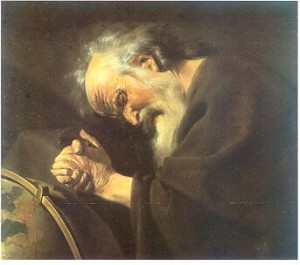Reference




Reference




OpenAI's Answer
Heraclitus, a pre-Socratic Greek philosopher, had a considerable influence on Renaissance thinkers, primarily through his concept of change and the unity of opposites. Renaissance philosophers often revisited classical ideas, and Heraclitus' emphasis on the dynamic nature of reality resonated with their quest to reconcile humanism and the natural world.
-
Concept of Change: Heraclitus is famously known for his doctrine of perpetual change, encapsulated in the phrase "No man ever steps in the same river twice." This idea influenced Renaissance thinkers' understanding of the cosmos as constantly evolving. This was pivotal in breaking away from the more static medieval worldviews.
-
Unity of Opposites: His idea that contradictions and opposites are essential aspects of reality influenced Renaissance humanists in their philosophical explorations. They saw in Heraclitus’ work a reflection of the complex and often contradictory nature of human existence and the natural world.
-
Impact on Humanism: Renaissance humanism, which emphasized the potential and achievements of humanity, found a kindred spirit in Heraclitus. His belief in the interconnectedness of all things and the importance of individual perception paralleled the humanist focus on individual experience and empirical observation.
-
Influence on Key Figures: Heraclitus’ ideas also had a direct influence on notable Renaissance philosophers such as Giordano Bruno and Nicholas of Cusa, who explored concepts of infinity and the nature of the universe, possibly drawing on Heraclitus’ exploration of the cosmos and the nature of reality.

For more detailed insights, see:
- Heraclitus | Internet Encyclopedia of Philosophy
- Heraclitus on Wikipedia
- Renaissance Philosophy | Britannica
Heraclitus' profound ideas about constant change and the unity of opposites provided a rich philosophical foundation that Renaissance thinkers expanded upon, helping to shape the intellectual landscape of the era.
Follow Up
Related
How did Aristotle's reception of Heraclitus influence philosophical thought?
How did Heraclitus' concept of the soul differ from Homer's conception?
How does Heraclitus’ philosophy relate to Wittgenstein's concept of stepping into the same river?
What contributions did Ingram Bywater and Hermann Diels make to Heraclitus studies?